Anyone who works in a restaurant will tell you: It’s not easy. And it’s increasingly uncommon to see restaurant workers not only make a career out of their vocations but remain at one restaurant for their working lives (if only because most restaurants don’t survive more than afew years).
But El Cholo, the venerable Mexican institution founded nearly a century ago, is a throwback in more ways than one. Many employees have stayed. And stayed. At the Western Avenue location, there’s a hand-drawn board honoring more than a dozen employees belonging to the “20 year club” — and that doesn’t factor in the long-serving employees working at other locations.
A board recognizing and celebrating El Cholo employees with 20-plus years of service hangs inside the dining room at the Western Avenue location.
(Mariah Tauger / Los Angeles Times)
Ron Salisbury, grandson of El Cholo’s founders (who has himself run the restaurant for almost 70 years) attributes the restaurant’s ability to retain employees, in part, to the cultivation of an egalitarian culture. “I want everyone to feel that we’re all important. Not just as a cog that makes the restaurant go, but respect each other. And that’s how we try to go through life,” Salisbury said.
I chatted with five of El Cholo’s longest-serving employees, who have collectively given it more than two centuries of their dedication and hard work. Together, they’ve done just about everything one could do for a restaurant: cooked, served, butchered, managed, prepped — even done maintenance.
In an age that has seen the gig-ification of work culture and flagging loyalty between employer and employee, particularly in such a physically demanding environment, that kind of longevity is rare. And it may not be something we see again anytime soon.
“I don’t think we’ll see people who will stay with you for 40, 50 years,” said Salisbury. “They came up differently.”
Sergio Ochoa, chef
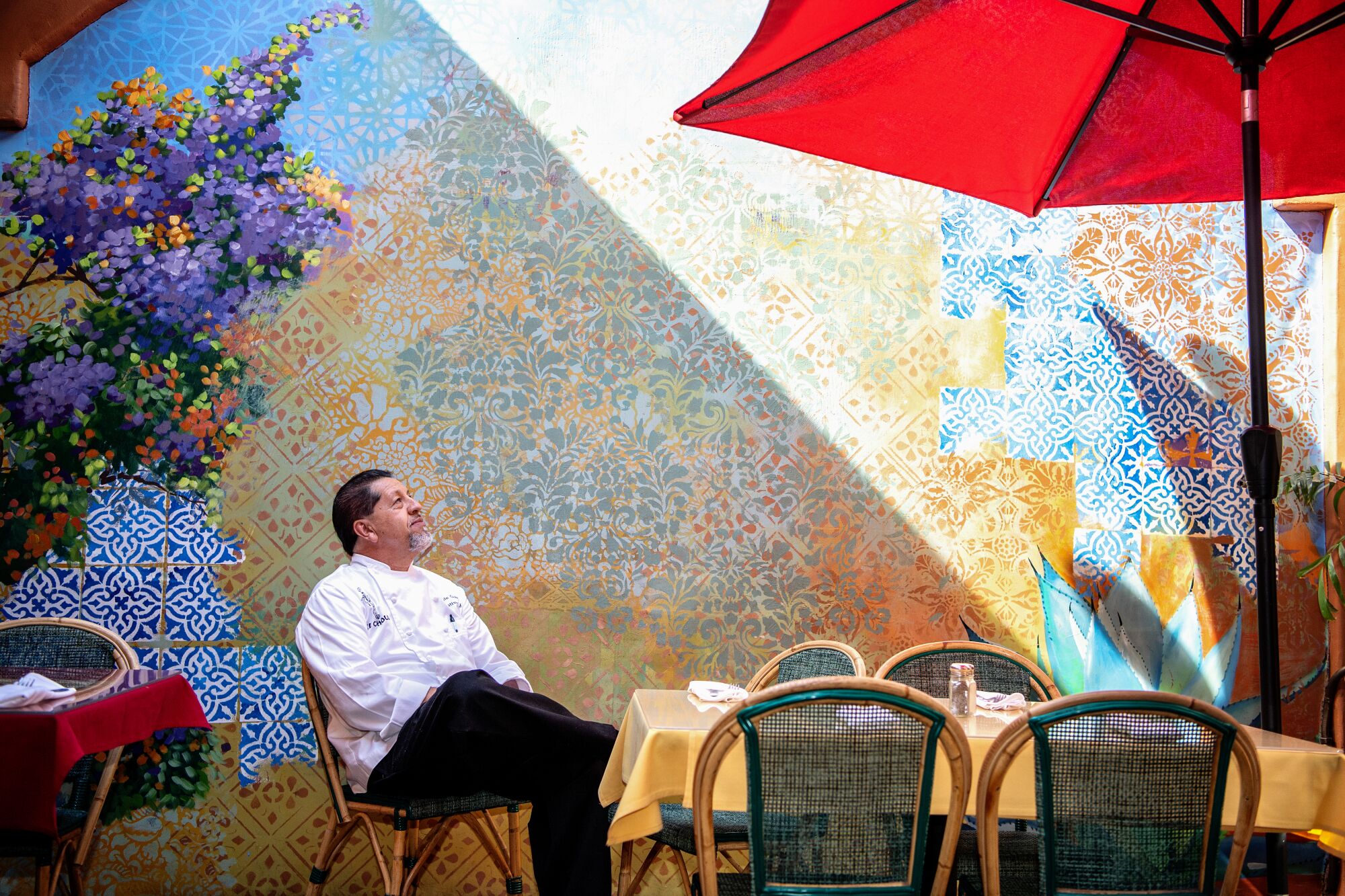
El Cholo chef Sergio Ochoa: “When I came here to the United States, in my mind I was like, I want to find a job where I can make money to buy my mother’s house. Or my own house, or buy my own car.”.
(Mariah Tauger / Los Angeles Times)
Sergio Ochoa, El Cholo’s chef, has worked for the restaurant for 41 years. Originally from Michoacán, Ochoa followed his father, who traveled to the U.S. periodically in the 1960s and ’70s as a seasonal agricultural laborer. “In those years it was easy to travel,” he said.
The oldest of seven children, Ochoa wanted to make money for his family. At the end of 1980, when he was 17, he connected with a dishwashing job at El Cholo through a cousin.
That lasted for a week. He had skills from working in agriculture, and was moved up to prep cook. “I was able to handle a knife and learn fast,” he said.
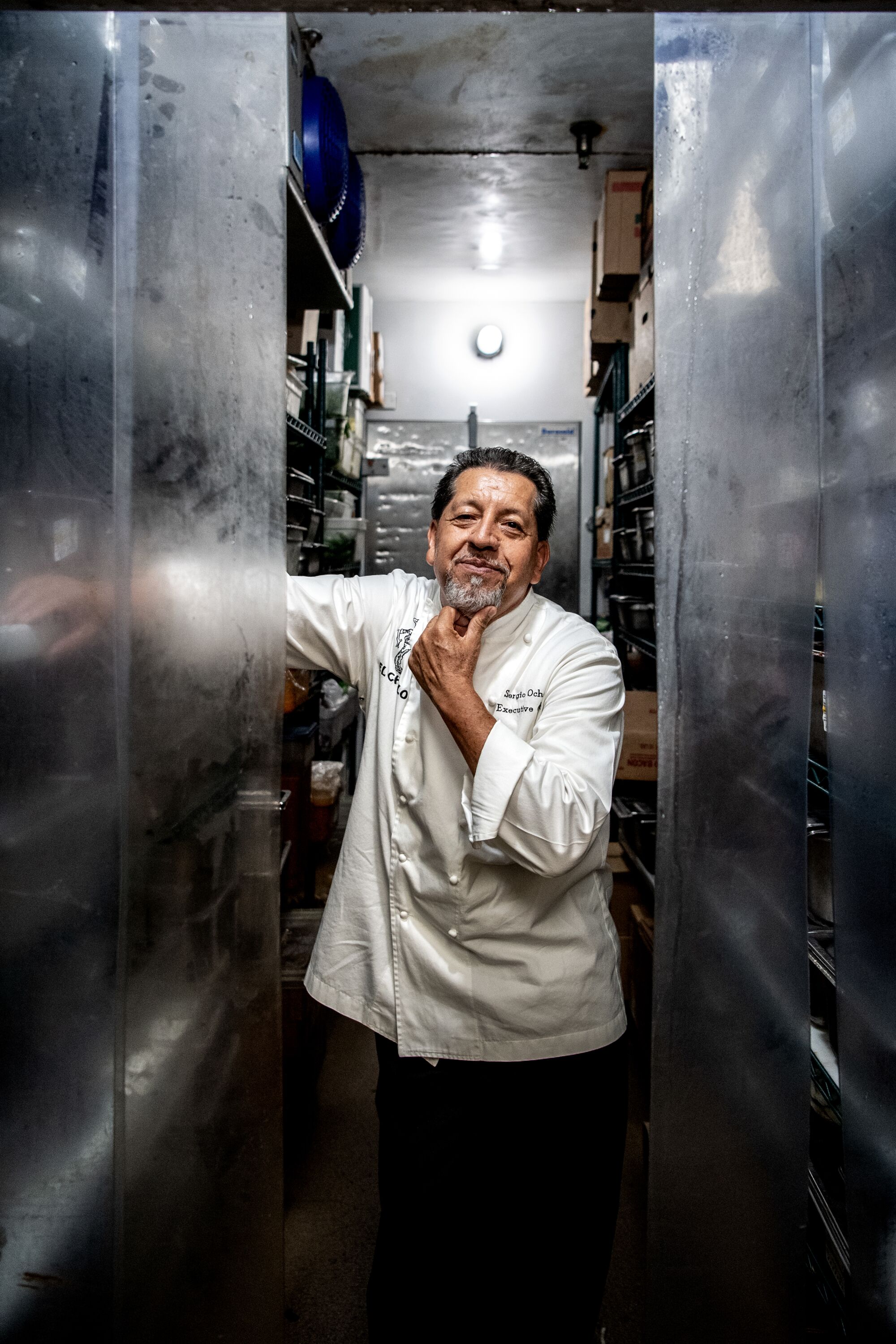
Sergio Ochoa, from dishwasher to El Cholo’s chef.
(Mariah Tauger / Los Angeles Times)
“I was making $3.25 per hour when I started,” Ochoa said. But a manager noticed him and bumped him to $3.50. “He said, ‘I like the way you work.’” Ochoa began learning the skills that set him on a path to becoming a chef: “Cutting tomatoes, cutting peppers, making chips in the deep fryer, rolling taquitos, rolling chimichangas.”
Another opportunity arose when a line cook went to Mexico and didn’t return. Within a year, Ochoa had moved up from dishwasher to line cook. By 1992, he had become chef and was invited by the owners in 1997 to open the restaurant’s Santa Monica location.
Asked why he’s chosen to remain at El Cholo for so long, Ochoa paused. “When I came here to the United States,” he said, “in my mind I was like, I want a job where I can grow up. I want to find a job where I can make money to buy my mother’s house. Or my own house, or buy my own car.”
He’d had experiences working in jobs with little prospect for advancement. But at El Cholo, he felt the restaurant could help him meet his goals: “To sustain my family; to help my family.”
Now with a family of his own, Ochoa has no regrets about his path. “My dream came true. Because I’m still working here, 40 years.”
Moises Torres, cook
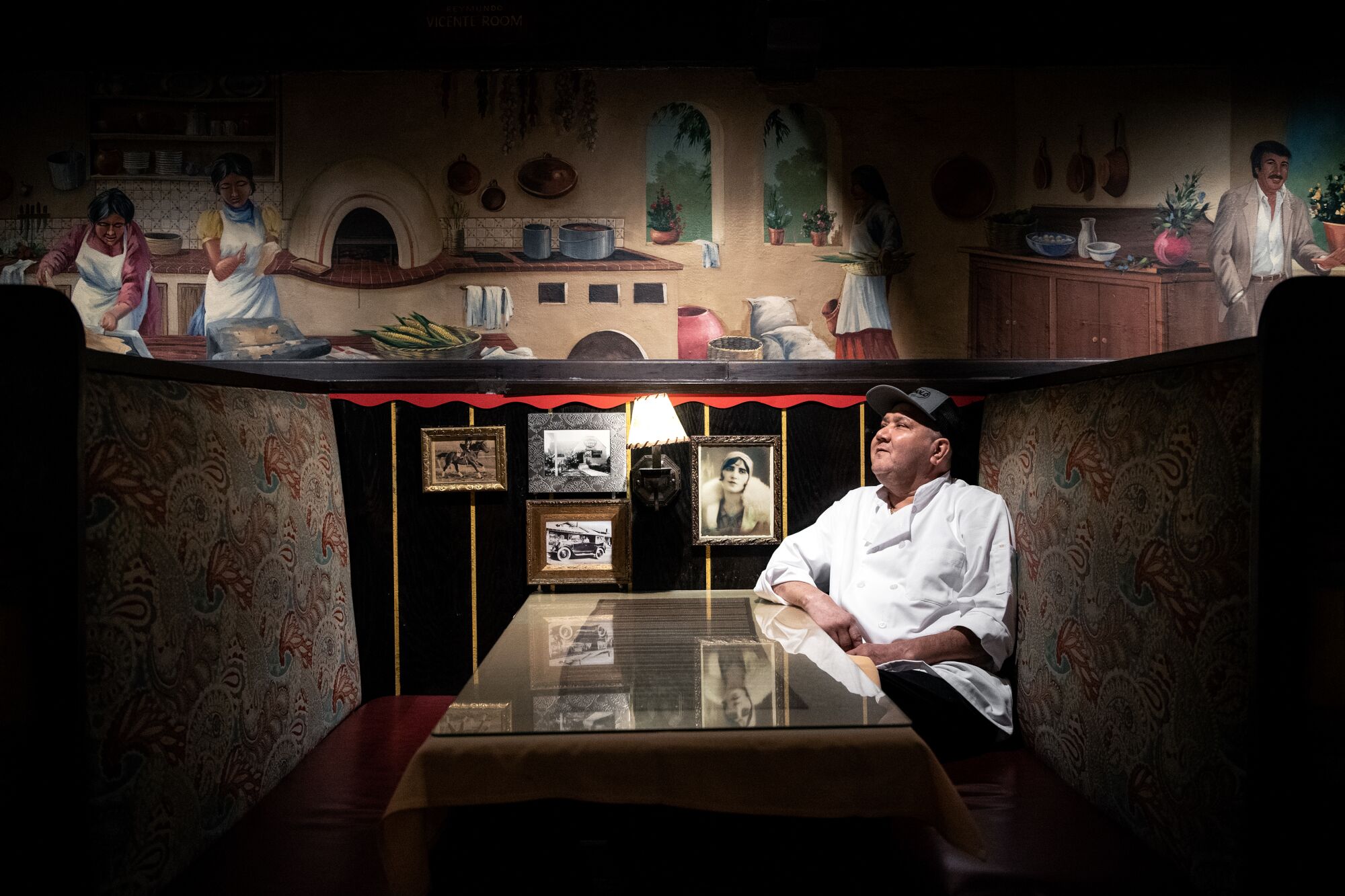
Moises Torres has been working at El Cholo since 1982.
(Mariah Tauger / Los Angeles Times)
A cook at El Cholo’s Western Avenue location, Moises Torres began working at the restaurant nearly 40 years ago. Originally from Mexico’s coastal state of Nayarit, Torres came to California to work picking oranges before following in the footsteps of an uncle to work at El Cholo. With no kitchen training, he worked under the tutelage of other cooks and El Cholo’s chef at the time, Joe Reina, to become a prep cook and learn to butcher meat.
Torres has enjoyed his time at El Cholo well enough (“I never thought about leaving,” he said) but is a pragmatist: “If I got another job, it would just be the same,” he said. Work is work, so why mess with a good thing?
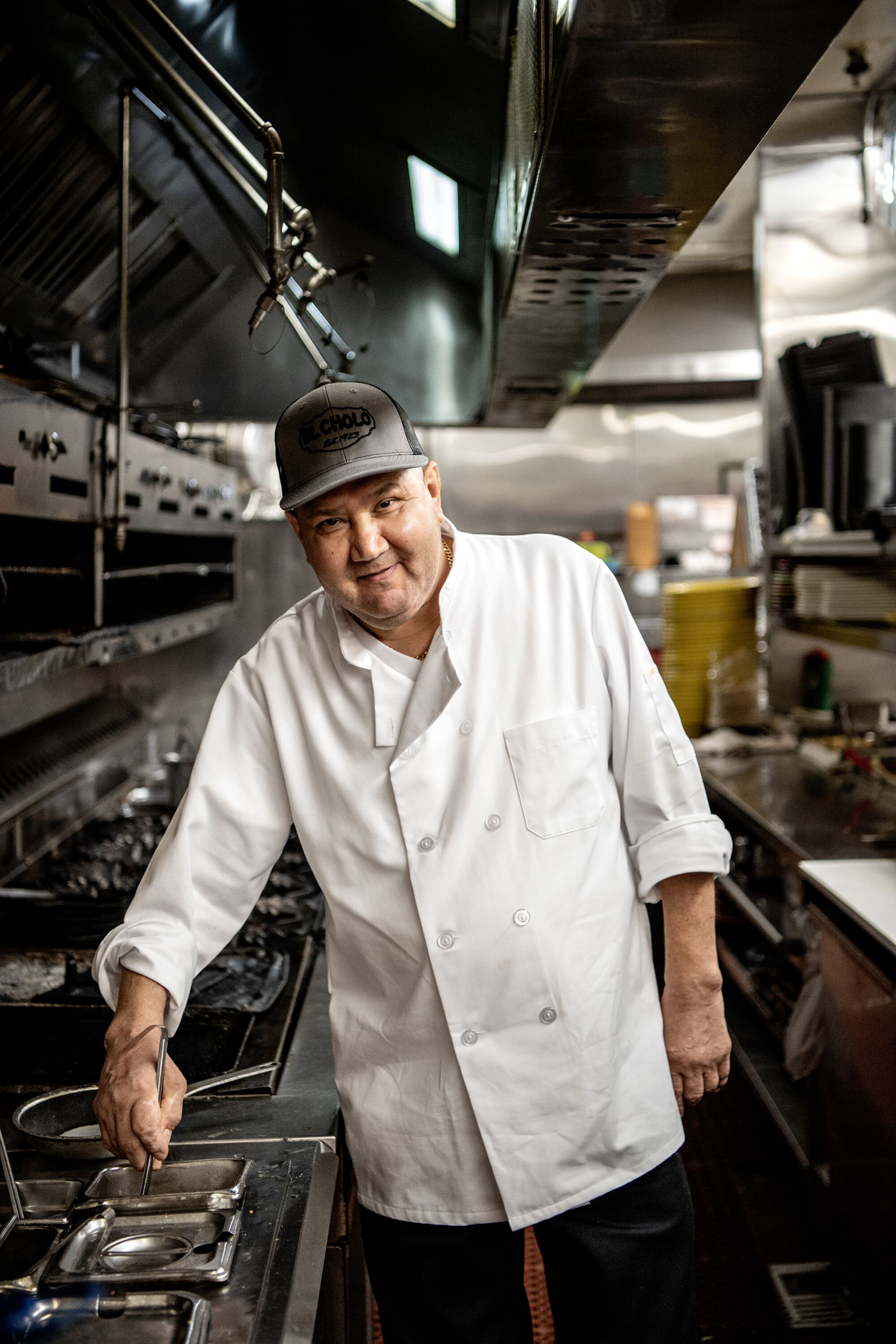
Cook Moises Torres has been working at El Cholo since 1982.
(Mariah Tauger / Los Angeles Times)
It could be a bit of senioritis creeping in: When I ask Torres if he ever misses home, he responds with a heartfelt, “Yes. Yes. That’s why I’m going to retire in December and go there … [I’m] 62!” (His manager has since indicated Torres plans to retire before then.)
He said he looks forward to visiting home again, seeing family and enjoying his favorite comida Nayarita: pescado zarandeado.
Jaime Cornelio, food runner
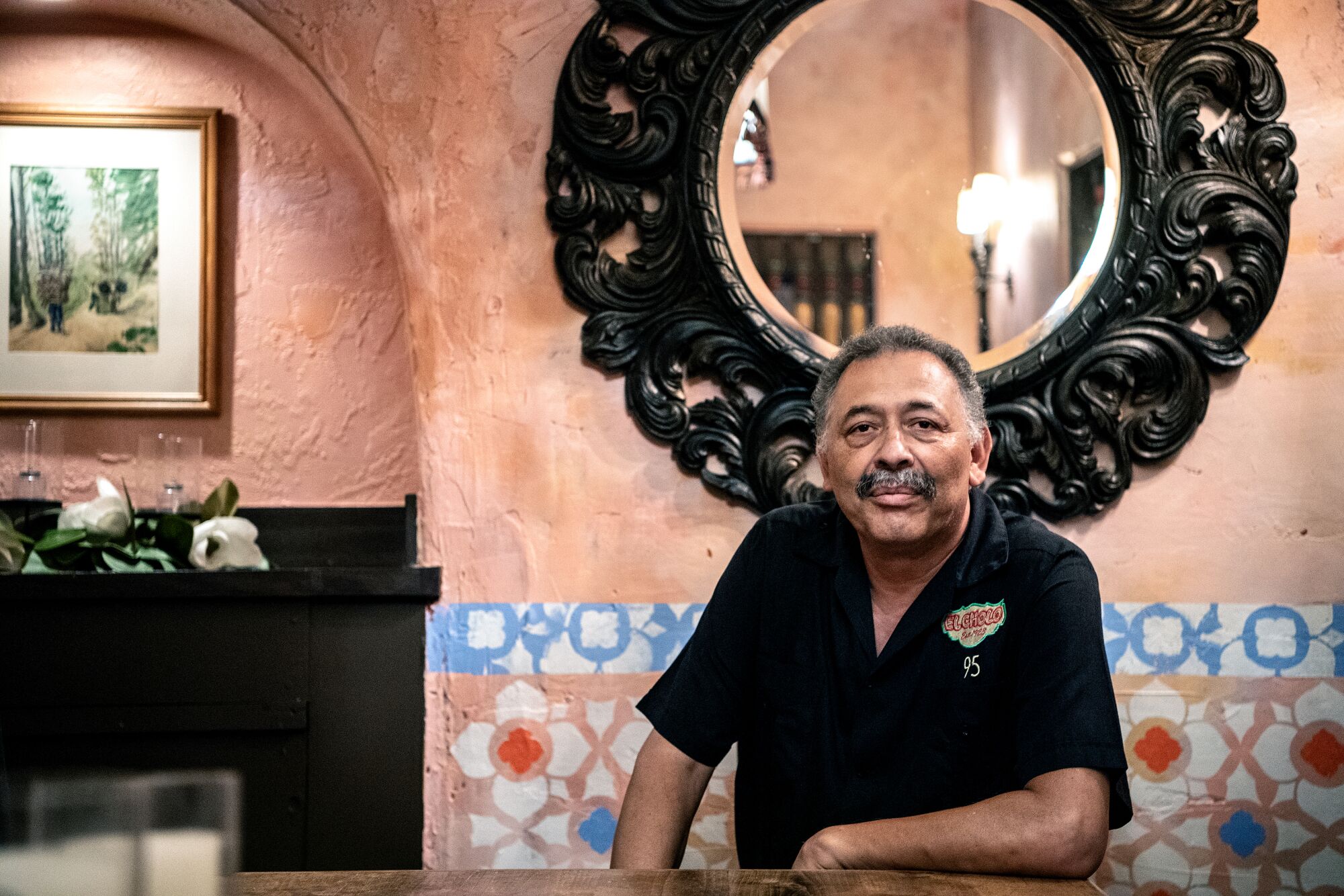
Jaime Cornelio has been an employee of El Cholo for over 40 years.
(Mariah Tauger / Los Angeles Times)
Jaime Cornelio began working at El Cholo when he was 18, following his older brother, Antonio. He’s worked for 40 years entirely at the Western Avenue location but has no immediate plans to retire.
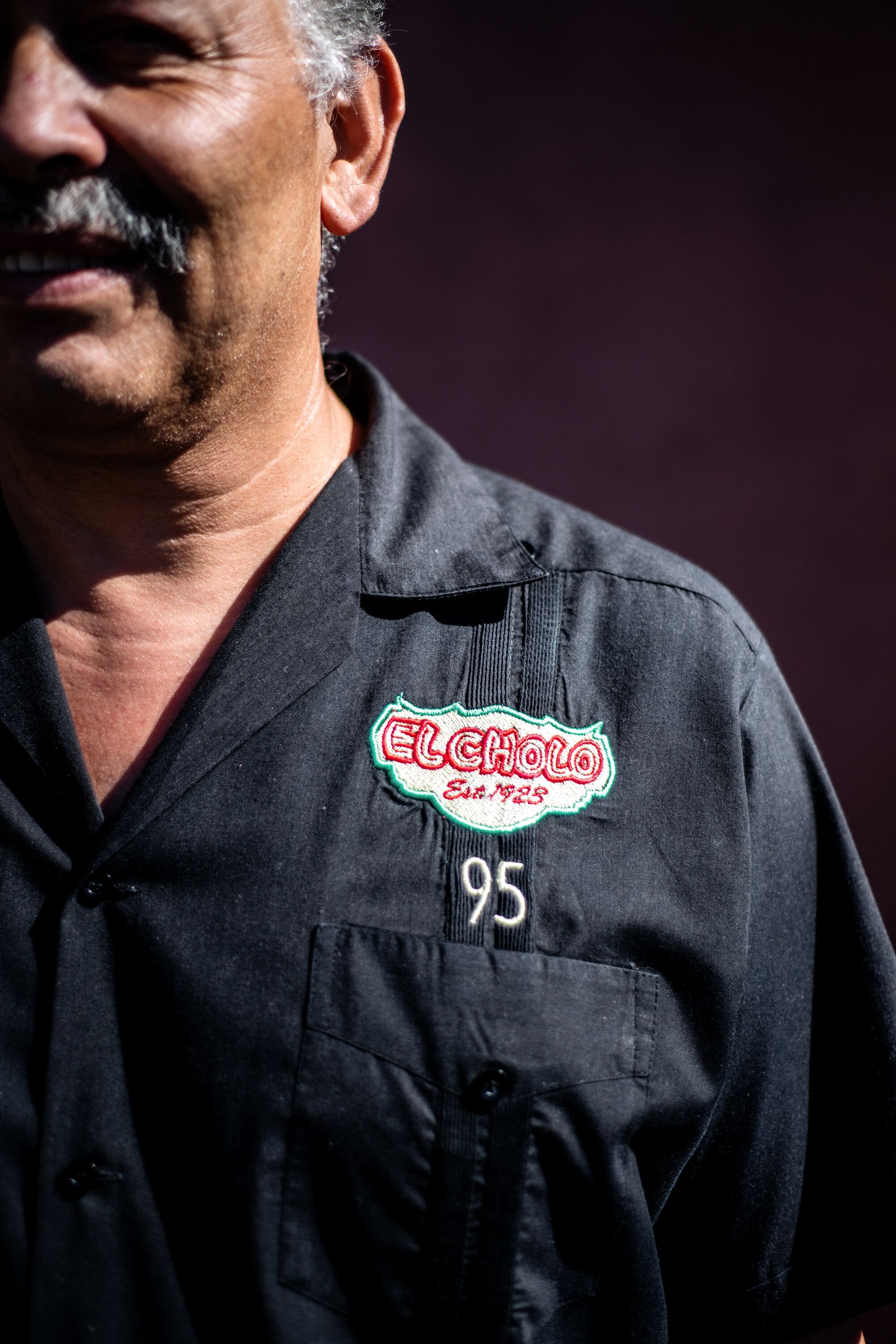
Jaime Cornelio.
(Mariah Tauger / Los Angeles Times)
“A lot of us have been here too many years already,” the food runner said, laughing as if to say, what’s a few more?
Cornelio is married with children to a woman from the same town where he grew up — Villamar, in the state of Michoacán. He still thinks about food from home, particularly the sweet corn tamales called uchepos (El Cholo’s most famous dish happens to also be a sweet corn tamale, made with cheddar cheese). Overall, he doesn’t think Mexican food in the U.S. is hugely dissimilar to that in Mexico, but he notes one major difference in the food at home: “It’s spicier. There’s a lot of chile.”
El Cholo is known for the stream of celebrities who’ve eaten at the restaurant over the years — I ask Cornelio to indulge me in a bit of name-dropping and he doesn’t disappoint: Elizabeth Taylor, Magic Johnson and Don Francisco of “Sabado Gigante” fame.
Justino ‘Tino’ Romero, manager

Justino Romero.
(Mariah Tauger / Los Angeles Times)
In 1979, when he was 20 years old, Justino Romero went along to work with a friend who bused tables at El Cholo. A manager asked him if he wanted a job. Fast-forward 43 years, and the Jalisco native has worked most of his life at El Cholo’s La Habra location. He now works as a daytime manager and server.
“I’m happy to be here,” Romero said. “I see the business as my own business. If you don’t see it that way, you’re in the wrong business.” The way he sees it, the company has helped him support his family over the years and he said he feels an obligation to repay that loyalty. “I feel like part of the family,” he said.
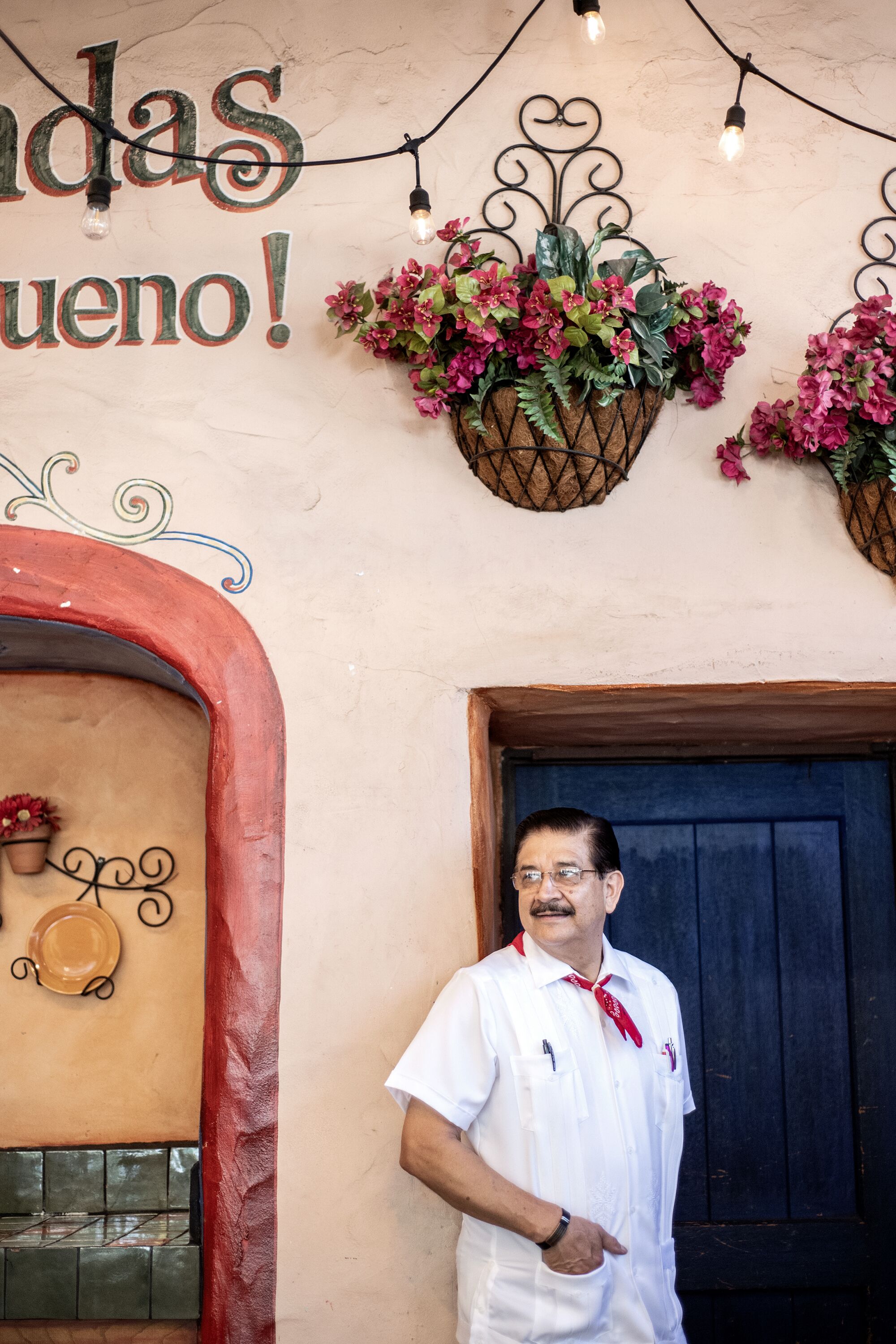
Justino Romero.
(Mariah Tauger / Los Angeles Times)
Originally from the town of Rincon de Mirandilla, Romero is the third oldest of 22 children.
Meal times were simple. “We’d hardly eat meat because there was no way you could get meat every day,” he said. “Pretty much eggs or beans, rice, and my mom’s tortillas.” On special occasions the family would have cocido — beef and vegetable soup.
When he was 17 or 18, Romero left home to come to the U.S. As with many who made that journey, his goal was to earn money to send home and help support his family.
“It was sad. It was scary,” he said. “When you cross the border with no papers, it’s very scary. Now, it’s worse. But in those days, it was hard. In the trunk of a car: Close it. It was tough.”
After a short stint at a different restaurant, Romero landed at El Cholo. Over the decades, he’s seen kids at the restaurant grow up and have their own kids.
“You can see first, second and third generations pretty much every week,” he said. “Families.”
Sue Killian, server
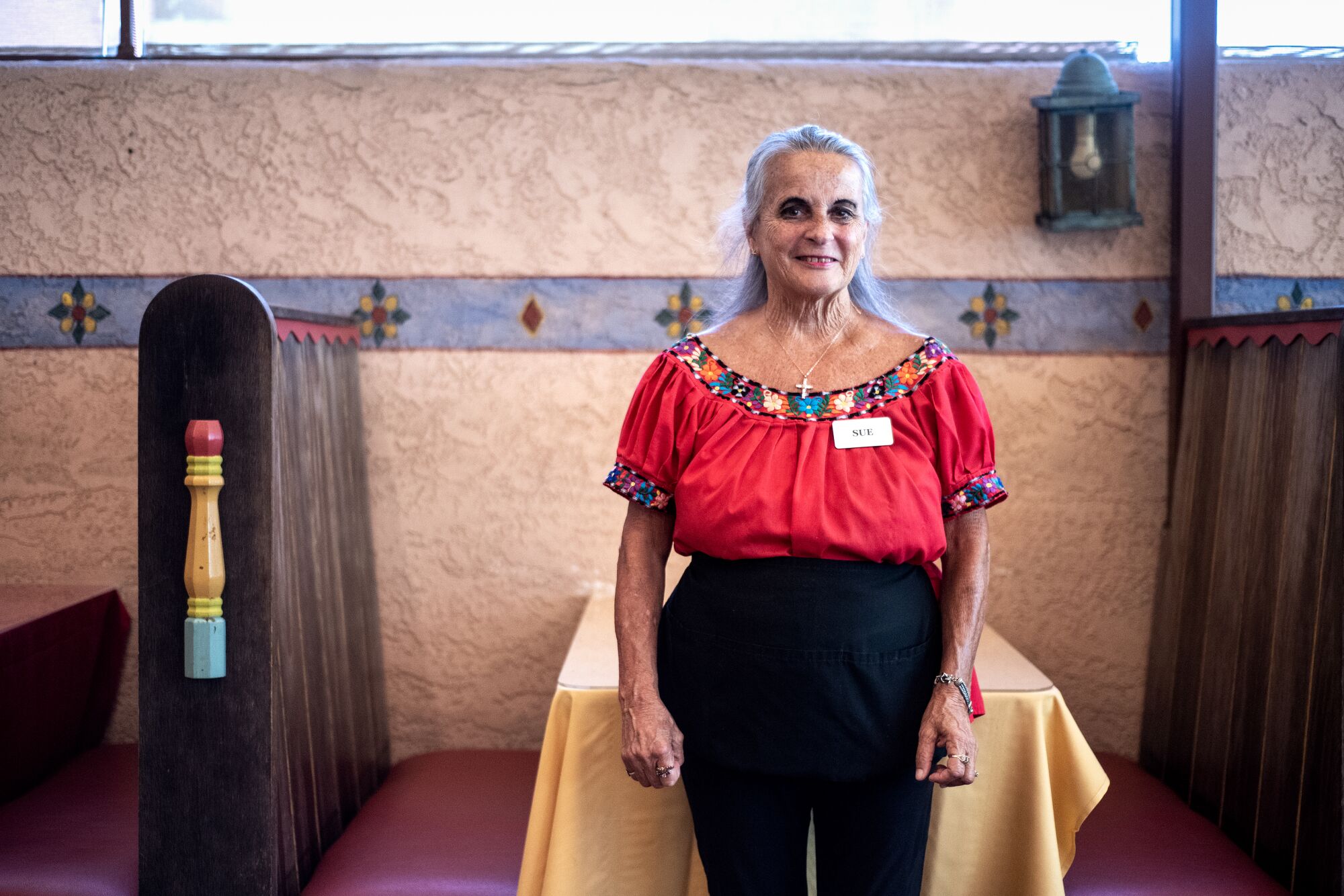
A mother of four, Sue Killian began working the night shift at El Cholo in an effort to be home with her children during the day while her husband was at work. 47 years later, Killian, now 80, works only part time at the restaurant while caring for her ailing husband full-time.
(Mariah Tauger / Los Angeles Times)
In 1975, Sue Killian and her husband were looking for a way to make some extra money to support their four young children. Killian’s husband worked during the day, so the logic was that she could work at a restaurant in the evening and they’d trade off caretaking duties.
Killian recently celebrated her 47th year of working at El Cholo. She also recently celebrated her 80th birthday. Killian has always been a server at the restaurant — with the exception, she notes, of her first six months on the job, when she was a hostess. She currently works a couple of days a week and has no plans to retire.
When Killian, who is from Coldwater, Mich. (“They’ve got one season, as far as I’m concerned, that’s livable,” she said), moved with her husband to the more temperate climes of Berkeley in 1964, she admits to experiencing some culture shock. “It was wild for us,” she said. “We lived in a small little town.” In 1969, they moved to Southern California when her husband was transferred.
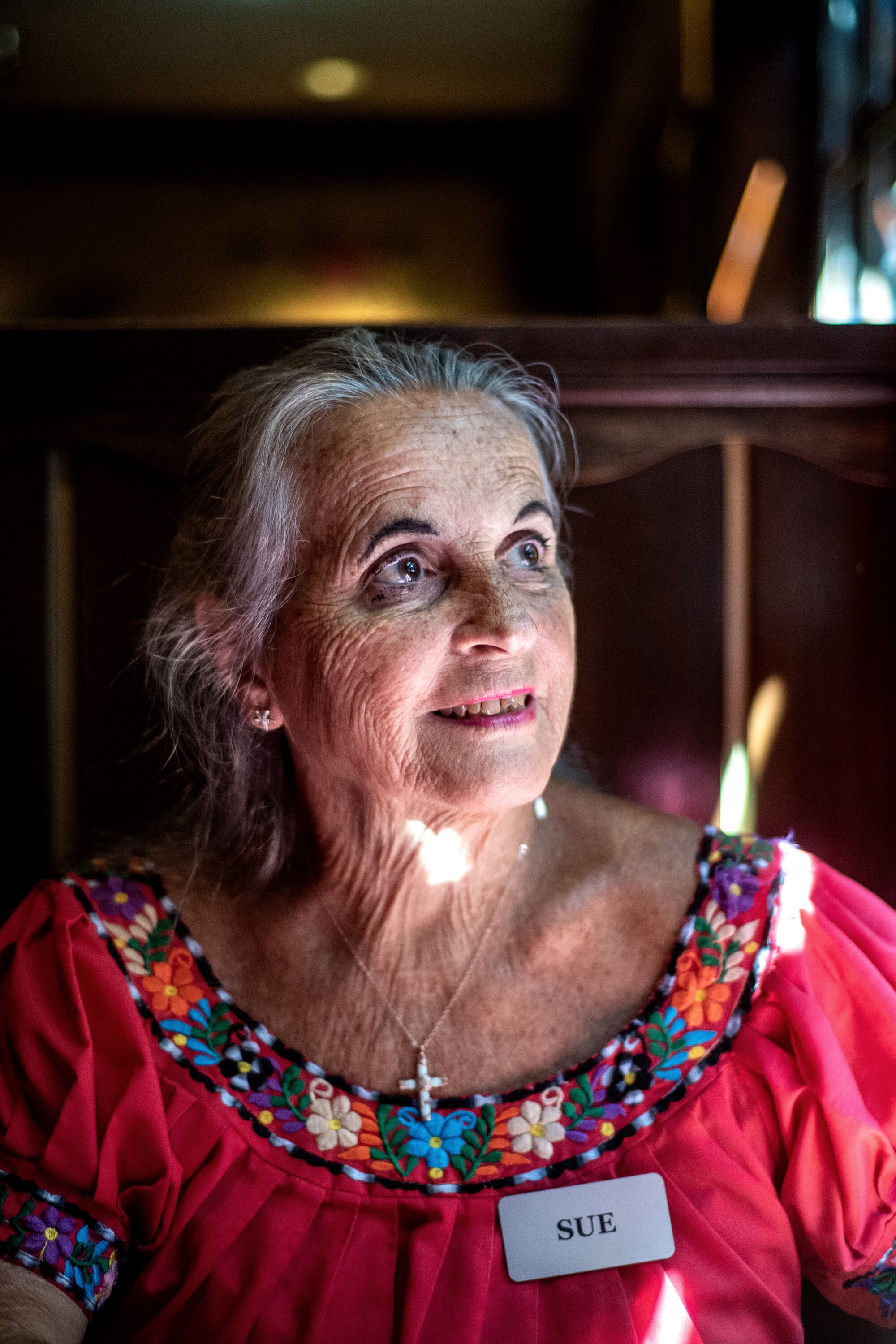
Sue Killian.
(Mariah Tauger / Los Angeles Times)
Over the years, in addition to El Cholo, Killian has worked for the California Farm Bureau, done payroll for a construction company and opened a tanning salon.
“I get very bored at home,” she said. “I like to see people; I don’t like being [cooped] up.”
Killian spoke of the joys of watching people grow up in the restaurant over the decades, as well as the dedication of her co-workers during a time when staffing difficulties are rampant in the industry.
“I drive down the street and I go by these real nice restaurants that are a chain, and they’re having trouble getting people to work for them. El Cholo does not have that problem,” she said. “At least this one doesn’t.”

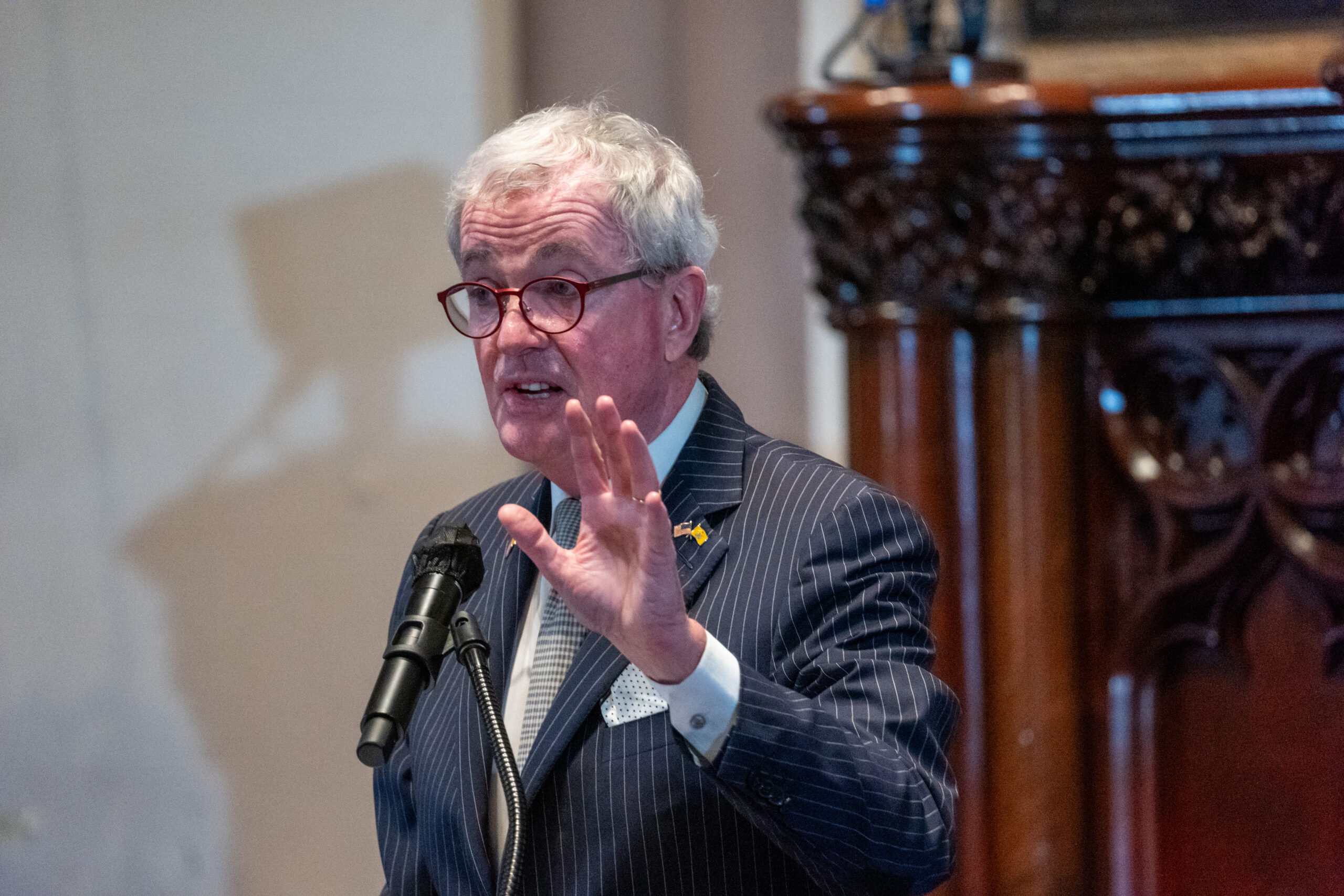


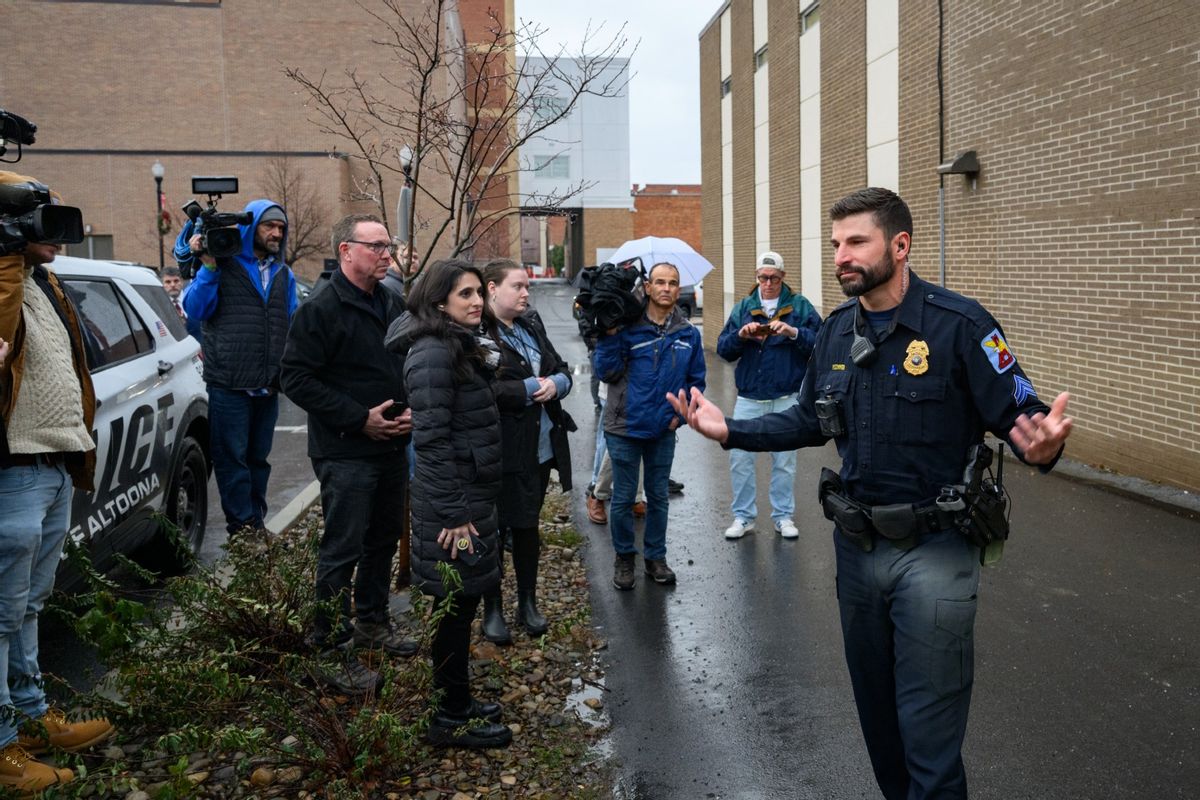





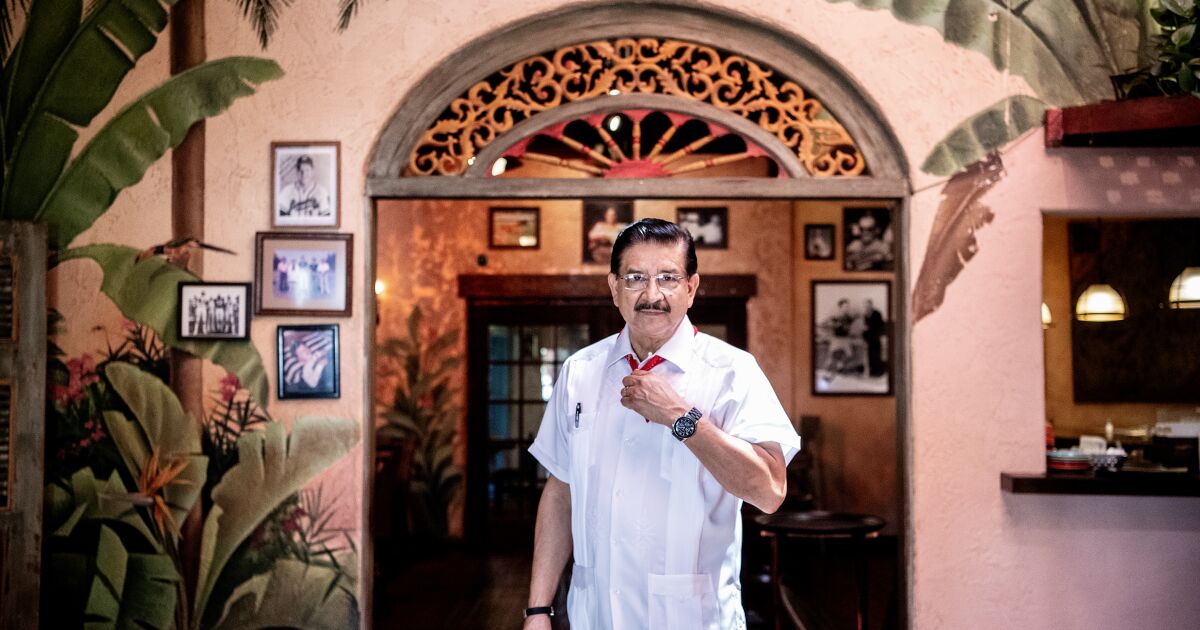






Discussion about this post